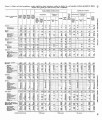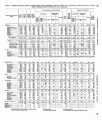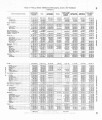| OCR Text |
Show COMMISSIONER OF IBDIAN AFFAIRS. 27 INDIVIDUAL INDIAN MONEY. The year ended showed a decided increase in the disbursement.of indi~iduaIln dian money. This is partly accounted for by the policy of disbursing their funds to returned soldiers who ask for the same, and the fact that there were more competent Indians and therefore larger sums were turned over to them than heretofore. The con-tinued high prices in some sections of the country, the numerous crop failures, and the tight money market in general made it neces-sary to expend larger amounts than usual for the benefit of the older Indians. In many cases it necessitated the selling of Liberty bonds, which were held in trust for various Indians, in order to provide them. with the funds needed to purchase food, clothing, and the proper farm-in equipment to enable them to work their allotments. bn the whole the Indians have made good use of their money. A great many of them have purchased comfortable houses or have made improvements to their old ones. They have also invested largely in cattle and modern farming implements. In regard to minors, while the general policy of conserving their funds has not been changed, it hns been found necessary and advis-able in some cases to allow the disbursement of their money for the purchase of land and cattle and the payment of tuition at colleges or automobile schools. In the first-named purchases the deed to the realty is made in their names and the cattle are branded with their individual brands. In other cases their funds have been used to pay traveling and hospital expenses when medical treatment was deemed necessary by a reputable physician. DEPOSITARIES FOR INDIAN 'FUNDS. The demand for depositaries for Indian moneys continued through most of the year despite the fact that receipts from land sales at some agencies were much below what they would have been had the money market been easier. Deposits amounting to $6,345,800 were authorized for 258 banks. At some agencies, pwing to decreased receipts, it was necessary to reduce the depoblts to meet current disbursements and in a number of instances to dis,!o~itinue some banks as depositaries. Due to the great demand for mone by hanks, better interest rates have been procured on Indian funds t 8 an during any previous period, the average rate in some localities being 5 per cent, and at one agency practically all the time deposits are earning 6 per cent. The number of bonds or renewals of bonds ap roved during the year was 1,846, representing a total amount of i38,560,396. As a margin of 5 per cent and in some cases 10 per cent must be allowed to cover interest as it accrues the deposit under these bonds is, of course, considerably less. u Considering the large number and wide distribution of banks which carry Indian deposits it was perhaps inevitable, in a period of such general financial strain as the country has been experiencing, that there should be a few of these depositaries among the banks which closed their doors during the year. It is gratifying to report, how-ever, that in some instances the closing was only tcrnporary, and that |









































































